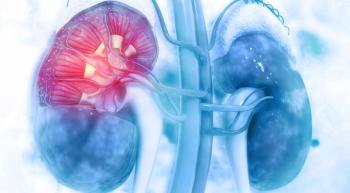
Personalized Treatments, Understanding Resistance Help to Improve NSCLC Outcomes
Personalized treatments are drastically improving the outcomes of patients with non-small cell lung cancer, but there is still work to be done when it comes to understanding drug resistance.
The treatment landscape of patients with non-small cell
“Arguably the biggest advance we've made in NSCLC over the past few years has been in our ability to learn more about tumors and their characteristics,” said Nirav S. Dhruva, MD. “[Now] we can better tailor treatments to patients, and as such, we [are seeing] better toxicity profiles, better efficacy, and ultimately, [we’re helping] patients live longer.”
Dhruva, an adjuvant assistant professor at the University of North Carolina (UNC) Tex Healthcare, recently sat down with OncLive, a sister publication of Oncology Nursing News, to discuss this exciting era in lung cancer.
Personalized Approaches Improve Outcomes
Major changes started when researchers started targeting the EGFR mutation, according to Dhruva. Now, clinicians can also look for ASK and ROS1 alterations.
“It seems like day by day, newer molecular targets [are emerging],” he said. “We also have immunotherapy. What was once very simple in lung cancer has now become very complex.”
This new slew of personalized treatment options has drastically changed outcomes for patients with the disease. NSCLC was once a “limited-survival disease,” according to Dhruva, but now, many patients are living for years after being diagnosed.
“Immunotherapy has definitely become much more of an upfront modality that we use often; it has really changed the landscape,” Dhruva said. “Before, we only used chemotherapy in the first-line setting, which was then followed by immunotherapy.”
Matching Treatment to Patient
In order to best match a patient’s cancer to the proper treatment, clinicians must get an idea of its molecular profile. There are 2 common ways of doing this: tissue- and blood-based assays.
Dhruva said that he prefers to use tissue-based testing most of the time, but understands that there is a role for blood-based assays as well.
“I’ve always tried to get tissue-based testing because I believe it is the most reliable,” he said. “However, I do believe there are certain situations where blood-based testing may be appropriate. For example, if it’s unsafe [for a patient] to get a biopsy or if the patient is not willing to get it.”
Additionally, clinicians are also tasked with finding the best way to test for PD-L1, which is a key indicator of whether or not the patient’s cancer will respond to immunotherapy.
“Oftentimes, we’re using an assay that is very drug-specific for the patient in whom we’re trying to use the agent,” Dhruva said. “A bigger questions that we, as community physicians, are trying to understand is, ‘As we try to become more uniform in practice with academic centers, what are the best PD-L1 tests and how do we get a little more homogeneity across the board with testing?’ It seems to be variable with different drugs.”
Understanding Drug Resistance
Once patients are prescribed their treatment regimen — even if it is specifically tailored to their individual cancer profile – many will still experience drug resistance down the line.
“What has been exciting is that we’re not seeing newer agents in the space and we’re starting to learn how resistance occurs and how to overcome that,” Dhruva said. “I believe that drug development is just going to continue, and hopefully, we’ll be able to figure out these resistance mechanisms.”
When that happens, Dhruva said, NSCLC may eventually become a chronic disease, rather than a life-limiting illness.
“We’re making some huge advances as far as what our first go-to approach is, but that’s where the complexities lie,” he said. “We use many of these agents upfront and then we’re kind of scratching our heads like, ‘OK, what do we use further down the road?’”
A version of this article originally appeared on
Newsletter
Knowledge is power. Don’t miss the most recent breakthroughs in cancer care.

























































































